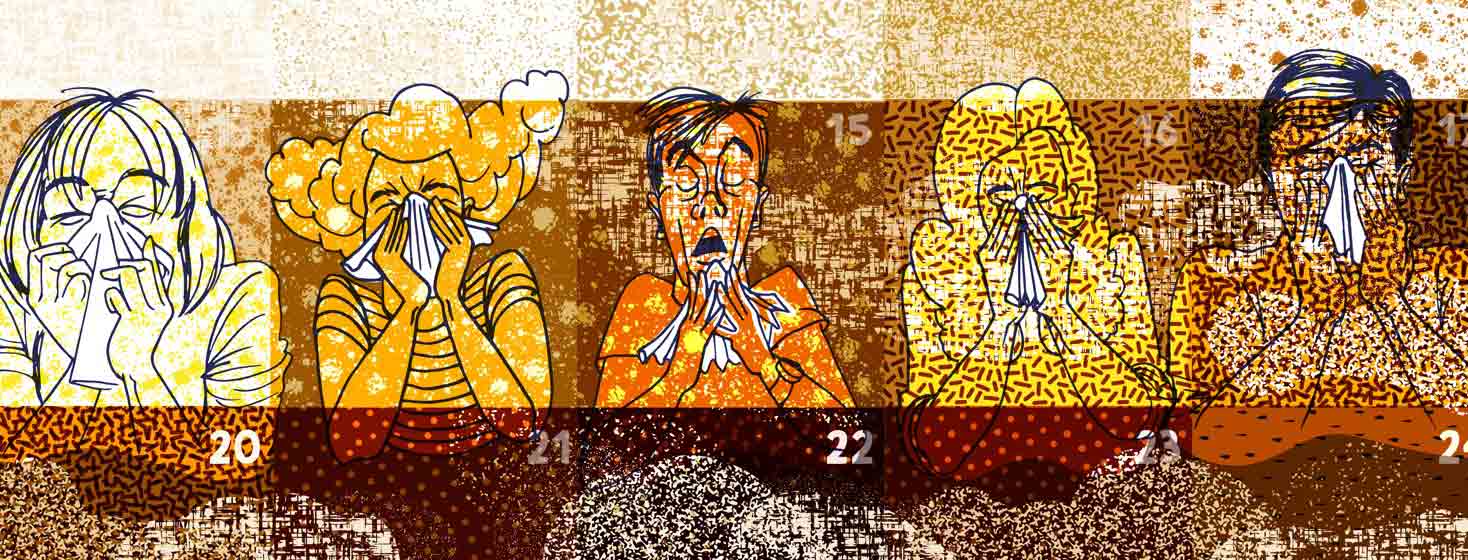Get Ready, Asthma Peak Week Is Coming
Asthma is a disease of the lungs that can impact breathing. If you are one of the 25 million Americans living with asthma, experts suggest taking extra precautions as the September asthma peak week nears.1-3
What is asthma peak week?
Fall brings many challenges to those living with asthma, but one week of the year is notably dangerous. Across the country, asthma-related hospitalizations and doctor visits rise in September, peaking in the third week. The well-known spike in asthma emergencies within this week has given way to the nickname “peak week.”3,4
Why is there a peak?
In September, kids and adults alike face a one-two punch of increased exposure to allergens and germs. In late summer and early fall, pollen levels go up. Common allergens like ragweed spike in the fall, and mold counts rise.3,5
At the same time, the cold and flu season begins. Kids are back in school, elevating their chances of getting sick and spreading germs. All of these elements align in the third week of September, impacting how we breathe.3,4
Preparation and good asthma control can help prevent illness or an asthma attack. Staying healthy, getting control over your asthma, and reducing risk can help you stay safe during peak week.1,3
How to stay healthy during asthma peak week
Colds and other common illnesses can make breathing difficult. Viruses are dangerous too, as they can trigger an attack.6
Make healthy lifestyle choices by getting enough sleep, staying hydrated, and managing stress. To avoid getting sick, practice good hand hygiene, and keep your breathing equipment clean. By getting a flu shot you can protect yourself and others from getting sick.6,7
Get control over your asthma
When asthma is managed, symptoms like coughing and wheezing cease. You can take control of your asthma by understanding warning signs and symptoms, and following your asthma action plan.1
An action plan can help you manage asthma while providing guidelines on when to seek medical attention. Work with a healthcare provider to create an asthma action plan, and make sure your loved ones have a copy. Stick to your action plan and continue taking asthma control medicine even when you do not have symptoms.1,7,8
Know your asthma triggers to help reduce risk
Part of good asthma control is knowing and avoiding your triggers. This can help reduce the risk of an attack. A few common triggers include:9
- Pollen
- Dust
- Smoke
- Pollution
- Viruses
- Pet dander
- Mold
- Chemicals
If you have some of these common triggers, the Centers for Disease Control (CDC) suggests reducing exposure by taking the following steps:9
- Use an air purifier with a HEPA filter
- Take your shoes off in the house
- Keep windows closed during peak pollen times
- Keep your pets clean and out of the bedroom
- Wash bedding weekly
- Use allergen-proof covers for mattresses and pillows
- Maintain clean floors, carpets, counters, and appliances
- Avoid scented cleaning products
- Stay informed on air quality in your neighborhood
Stay ahead of asthma to stay safe
Year-round asthma control is key to living healthy, especially during asthma peak week. Revisiting your control plan, avoiding triggers, and prioritizing wellness can help you stay safe in September.
What tips do you have for controlling asthma during September peak week? Share in the comments below!

Join the conversation